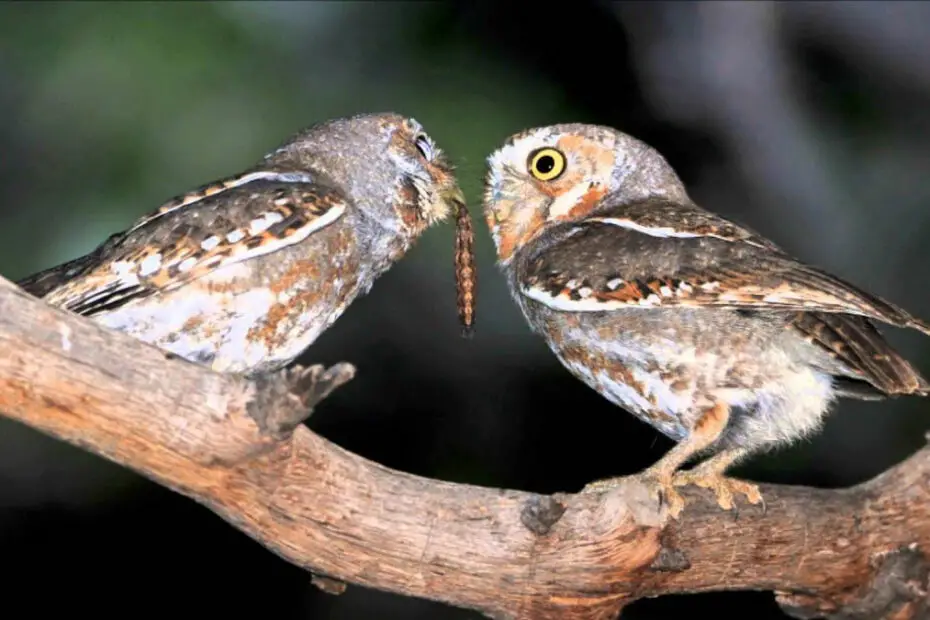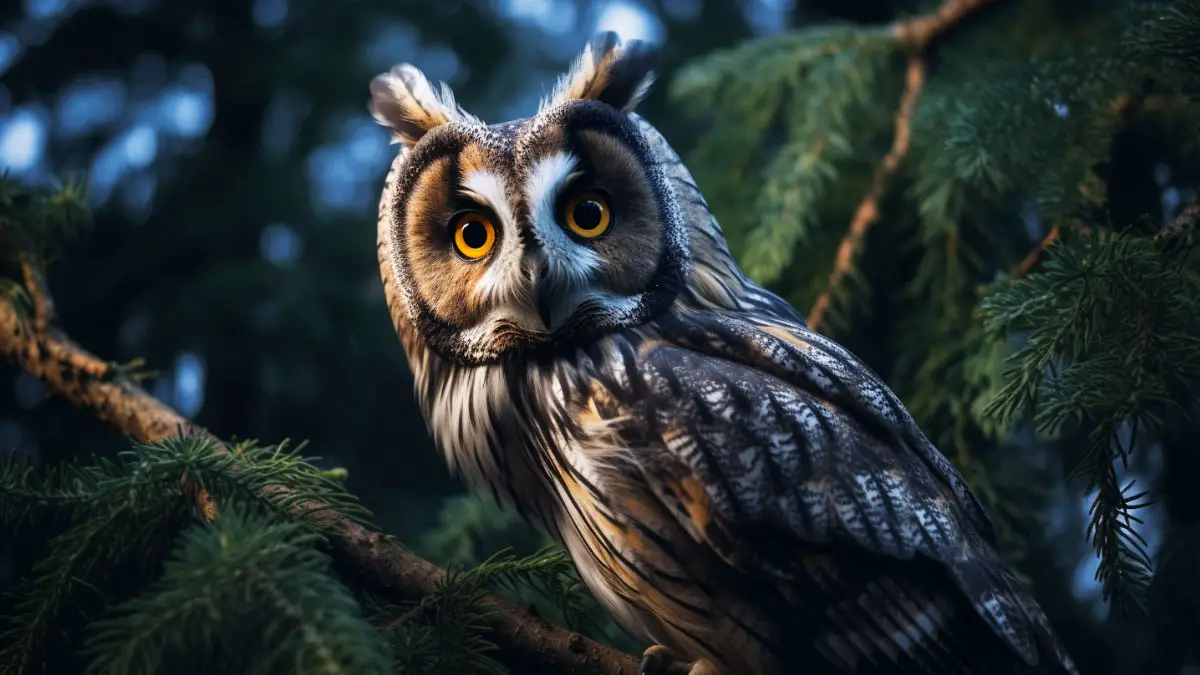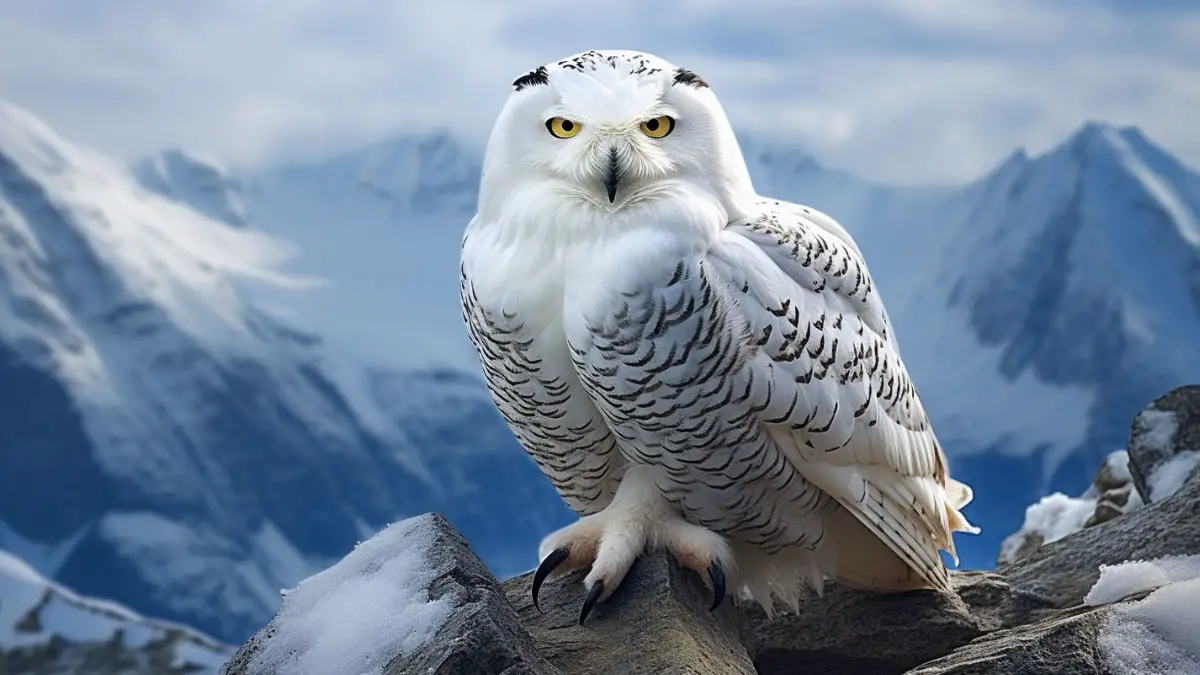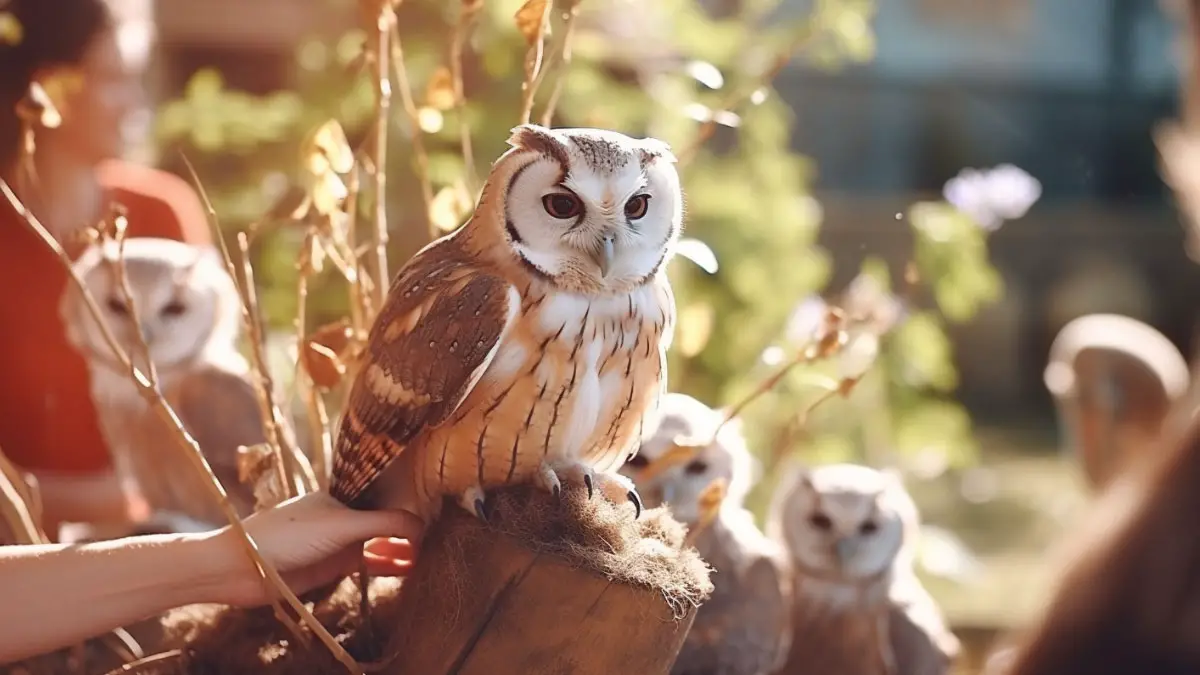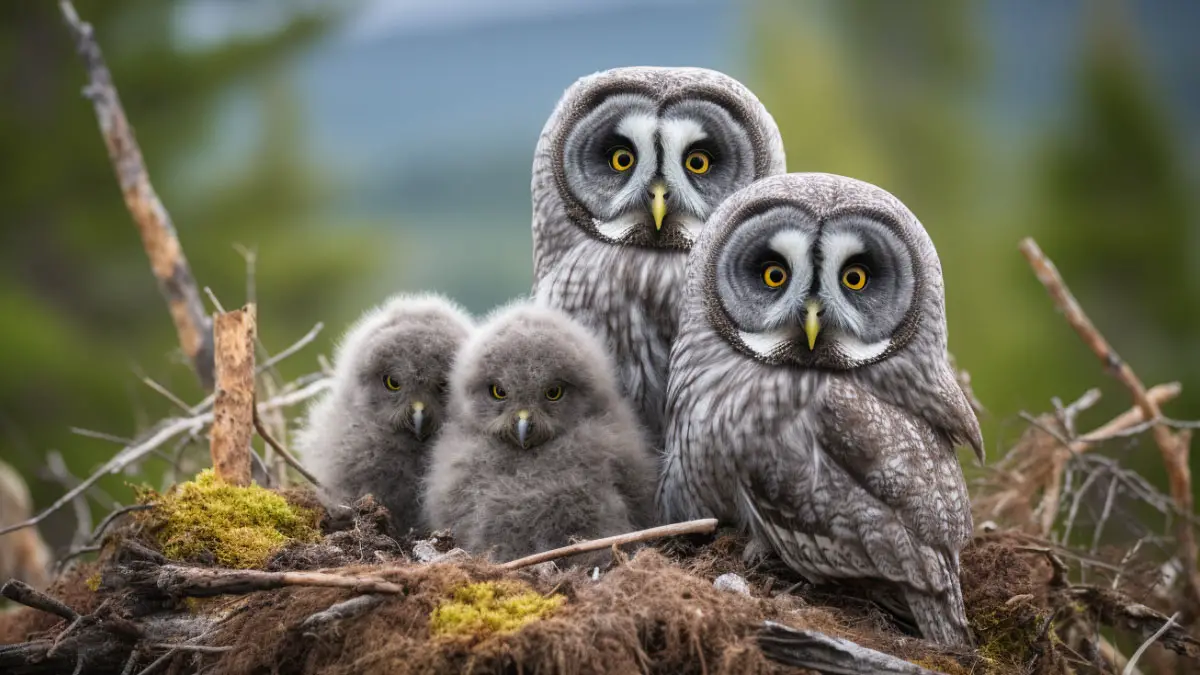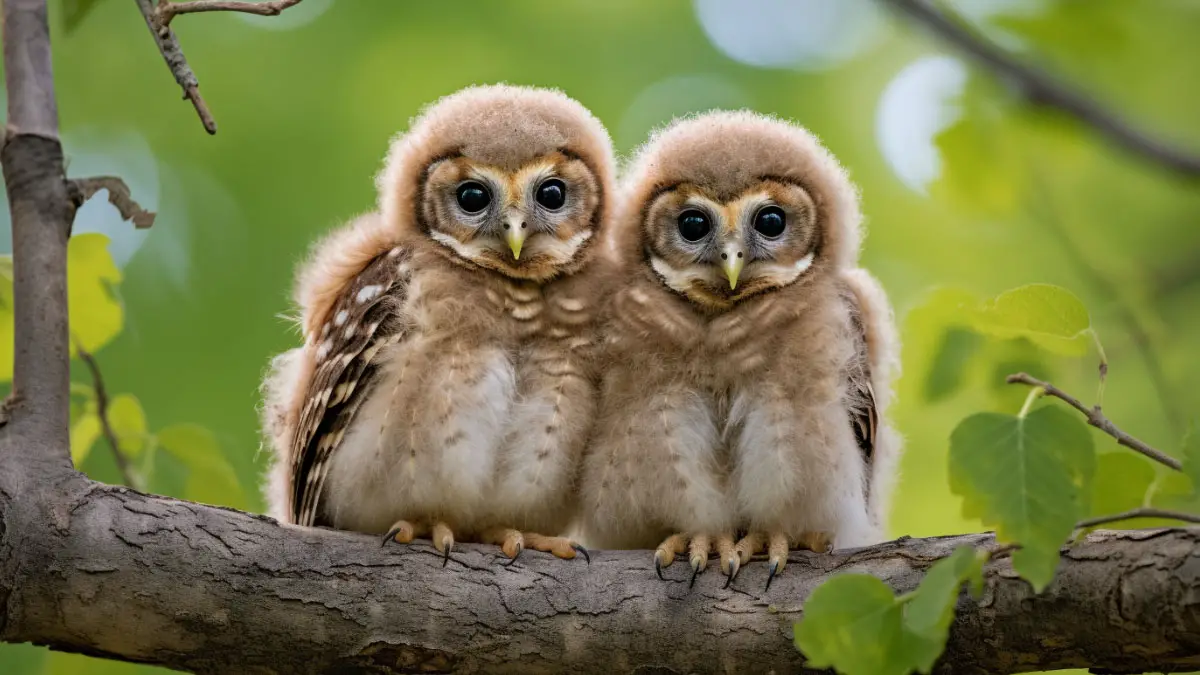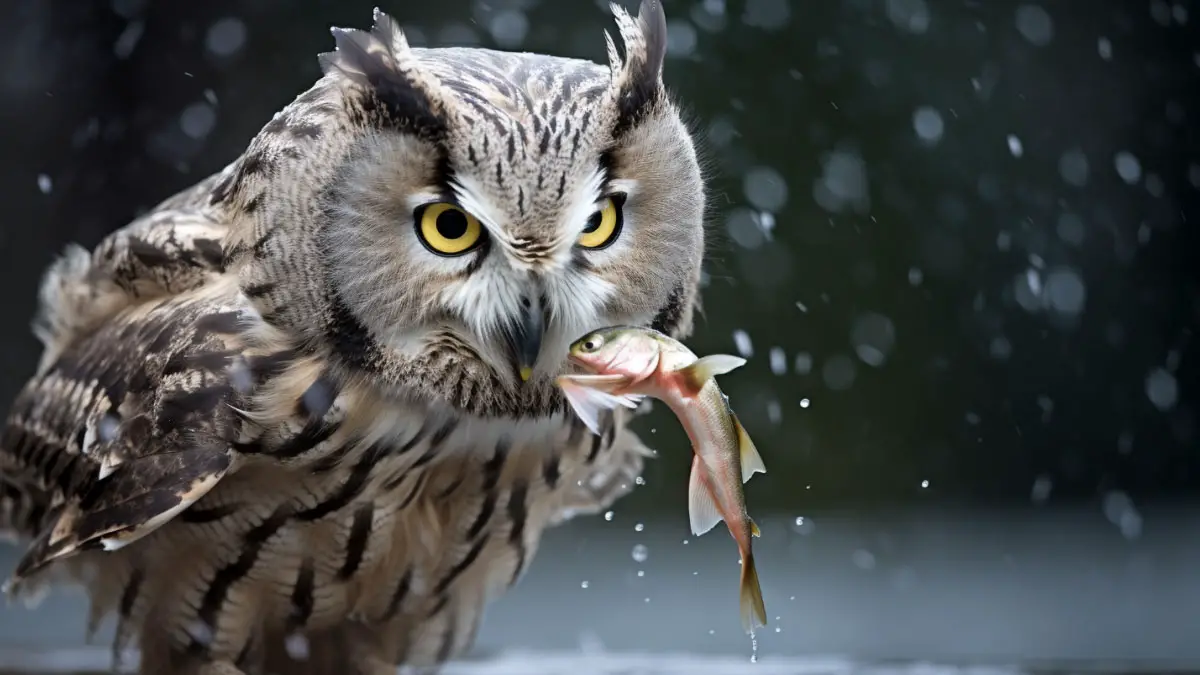Like eagles, owls are also called birds of prey. They hunt and kill their prey using curved bills and sharp talons. So, people think they only eat small rodents and mammals. However, they have a diverse range of diet options, including invertebrates.
So, do owls eat bugs? Yes, owls eat bugs, and their insect consumption can be fascinating. You’ll find moths, beetles, grasshoppers, and spiders in their food list.
However, owls indeed eat bugs. But how much does their diet depend on insects? And do all species of owls eat insects? Let’s explore owls’ dietary habits and the role insects play in their nutrition.
Do Owls Eat Bugs?
Like almost all birds, owls eat bugs. But they’re primarily carnivorous birds of prey. Their diet mainly consists of small mammals, birds, and, occasionally, fish. They also consume insects when larger prey is scarce.
These insects are typically incidental to their diet and not a staple food source. However, there are 254 species of owls in the world. And the dietary habits of different species of owls can vary.
Some, like Scops and Screech Owls, eat insects. Barn Owls, on the other hand, mostly eat small mammals like voles, mice, and shrews. However, they eat insects such as beetles and spiders during summer, along with bugs.
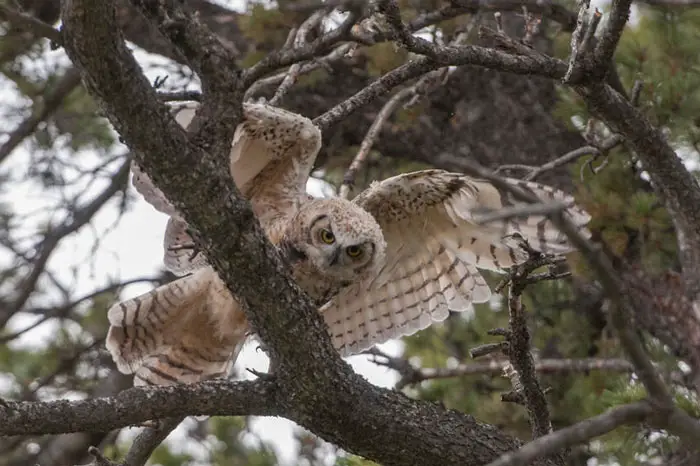
Size also plays an important role here. The largest species of owls, like Great Grey Owl and Snowy Owl, mainly hunt big prey. In contrast, small species like Elf owl and Little owl feed on insects and small birds.
Here’s a table about different species of owls and their feeding habits:
| Species | Feeding Habit |
|---|---|
| Barn owl | Mainly voles and other small rodents |
| Short-eared owl | Mostly rodents |
| True owl | Frogs, lizards, snakes etc |
| Flammulated owl | Insects such as moths, crickets, and beetles |
| Western screech owl | Mostly small rodents and insects |
| Tawny owl | Frogs, fish, and insects |
Are There Any Specific Insects that Owls Prefer?
Owls are known for their diverse diets, which include a wide range of prey. However, there are no specific insects that owls consistently prefer. They primarily hunt small mammals like rodents (mice, voles) and birds.
They also eat insects when the opportunity arises. These insects can vary and may include moths, beetles, grasshoppers, and even larger insects like cicadas.
Are Bugs Part of An Owl’s Diet?
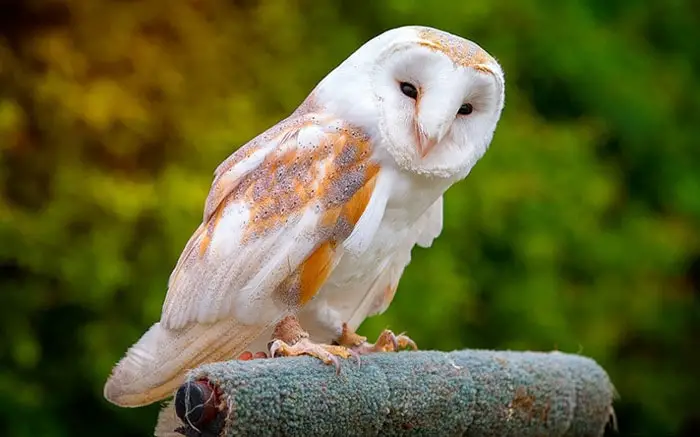
Yes, bugs are part of an owl’s diet, although they are not typically the primary source of food for most owl species.
They’re opportunistic hunters and will eat a variety of animals if they’re available. Insects may be more common in the diet of owls that inhabit areas where larger prey is less abundant.
Nutritional Value and Benefits of Eating Bugs
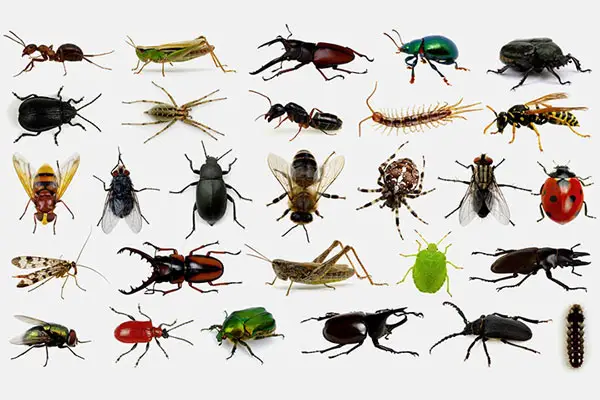
Insects can be a valuable source of nutrition for owls when included in their diet. Here is a table showing the average nutritional value of insects per 100g:
| Nutrients | Amount |
|---|---|
| Protein | 9.96-35.2 g |
| Lipids | 10-60 g |
| Carbohydrate | 6.71-15.98 g |
| Energy | 400 to 500 kcal/100 g |
| Omega−3 fatty acid | 2.3-2.7g |
| Moisture | 66% to 71% |
| Zinc | 4 -62 mg/100 g |
| B12 | 4μg/100 g |
Benefits
- Protein is crucial for muscle development and overall growth in owls.
- Dietary fat is essential for energy production, insulation, and the absorption of fat-soluble vitamins like vitamin A.
- Owls primarily rely on crabs for energy.
- Energy is essential for owls to support their active hunting and flying lifestyle.
- These fatty acids are beneficial for preventing atherosclerosis in owls
- Moisture can help owls stay hydrated, especially in dry or arid environments.
- Zinc prevents deficiencies and helps in copper absorption
- Vitamin B12 is crucial for nerve function and overall health.
Can Owls Eat Dead Bugs?
Owls primarily feed on live prey and insects. They are not scavengers and typically don’t eat dead bugs or other carrion. Owls are skilled hunters, using their sharp talons and keen vision to catch their prey.
How Do Owls Catch Flying Insects Like Moths and Beetles?
Owls possess remarkable adaptations for hunting flying insects like moths and beetles at night. Their extremely sensitive hearing enables them to detect high-frequency sounds, which range from 200 Hz up to 12 kHz.
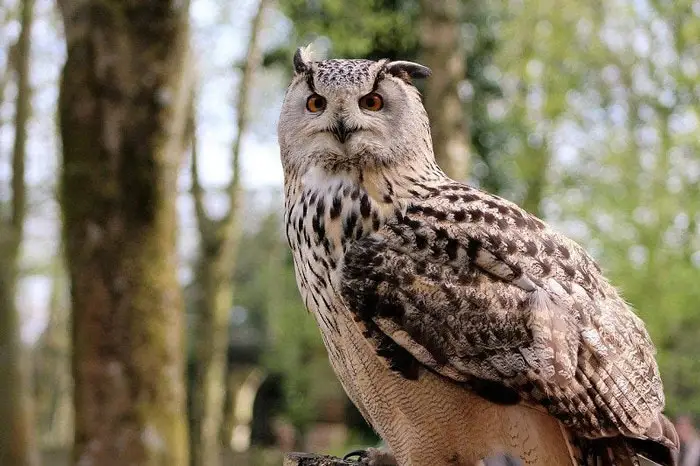
With their keen vision, they spot prey from up to 100 feet or more away. Once locked onto their target, owls execute precise 270-degree head rotations to triangulate its location. Then, swoop down to snatch the flying insects with precision and stealth.
FAQs
Want to know more about owls and their diet? Check out these question-answer sections:
Yes, owls can eat caterpillars. Owls have a diverse diet, including insects. And caterpillars can be a part of their food source.
Most of the owls are nocturnal. That means they hunt at night. However, species like Northern Pygmy and Hawk owl hunt during daylight. They eat bugs during the day.
Northern pygmy owls mostly eat small rodents like voles, mice and other creatures like frogs and snakes. But during the summer season, they eat insects such as grasshoppers, cicadas, crickets, cicadas, and beetles.
Conclusion
And there you have it – the intriguing answer to the question we’ve been pondering: “Do owls eat bugs?” Yes, they do. While mice and voles are a staple in their diet, they won’t hesitate to snatch up an insect if the opportunity arises.
However, feeding habits may vary due to different species. Insects typically make up only a small portion of an owl’s diet. But they provide a valuable source of nutrients and variety in their diet.
